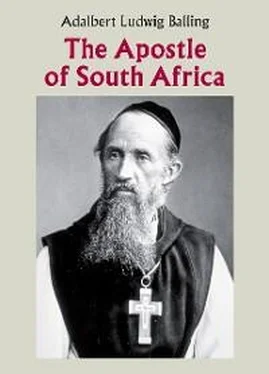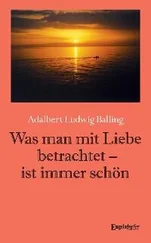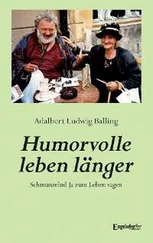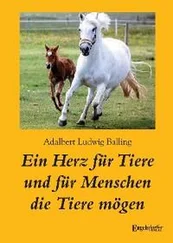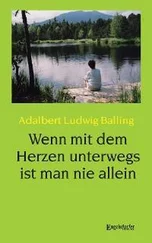Problems arose also with Turkish officials over Mariastern’s building activities. At one point, positions became so hardened that Fr. Franz had to actually resort to the supreme authority in Constantinople.
Meanwhile, the monastery experienced an explosive growth. Br. Bruno, confectioner in Austria before he entered, was appointed farm manager. His job included the care of Mariastern’s cows to which Fr. Francis had recently added four pedigree animals of the ‘Muerztal breed’. But who could milk them? Since the manager had never milked a cow, Fr. Francis taught him without further ado. Other responsibilities were distributed: Fr. Gallus was appointed coachman, Br. Fridolin, cook and Br. Jacob, smith. Whatever a man’s occupation, he lend a hand with buildings and roads, while an Italian contractor supervised the kiln and Croatian masons laid the bricks.
Endless Quarrels
Not that everything went smoothly. There were differences of opinion among the monks. Two priests complained that the projected quadrangle of the future monastery was too big for poor, simple Trappists. Fr. Francis gave in and changed the plans he had drawn up. On the whole, however, the monks were united. Things became critical only when some escaped overnight, an incident we return to a little later.
What really taxed Fr. Franz’s patience were the marauding gypsies who had been set up against the Trappists by a neighbouring Turkish landowner. Only after many negotiations and God’s felt protection at the intercession of good Saint Joseph – to whom, incidentally, Francis Wendelin Pfanner had a lifelong devotion – he was able to reach a settlement with them. It was one of the many occasions which could have robbed him of all courage and confidence. But he stood his ground even when Turkish officials tried to put a stop to the new monastery by citing the Koran to him.
Abbot Francis:
“We had hired day labourers at twenty-one Turkish groschen (pennies) a square meter to help us lay a solid foundation. Sand, though not terribly clean, was taken from a level patch of ground by the Vrbas and bricks were burnt at the brickyard in Krcevina. Firing the bricks required a large amount of firewood and a road for transport. Bricks were made and stones quarried by hired labour who also loaded the carts which were drawn by two gray Styr horses. These huge beasts easily made the trip to and fro between the kiln and the quarry a hundred times and more. Limestone was a problem. Since we did not have the right quality of lime we had to buy it from neighbouring peasants. All building timbers and boards were sewn at the mills by the river Sava on the other side of Old Gradiska six hours distant and then rafted across the Vrbas. Everything worked out alright until one day the Pasha showed up at the building site, accompanied by a whole squad of sabered officials. ‘What are you up to?!’ he shouted. ‘You are building a fortress! I say: Stop it’!”
Each time Fr. Francis demanded to see the regulations black on white and then usually ignored them. He knew fully well, for example, that by Turkish law Christians were allowed to build “only with wood and clay”. But what options did such laws leave him? Mollify the shouting Pasha with bakshish? The Pasha would have liked that and probably turned a blind eye to the building. However, the Vorarlberger would not stoop that low. “With a few hundred ducats I could have swayed the Pasha, but bribery was out of the question. I never learned that trade.”
Like two bulls interlocking horns neither the Turk nor the Vorarlberger was ready to budge an inch. However, the time came when Fr. Francis had enough of intrigues and wrangling. He threatened the Pasha that he would appeal to the sultan in Constantinople. His words came to the ears of the Austrian consul who did all in his power to restore peace between the loggerheads without, however achieving anything. Instead, Fr. Francis sent Br. Zacharias to the Ministry of Foreign Affairs in Vienna to obtain an introductory letter for him to the Sublime Porte. Armed with this letter he travelled to Istanbul to present it to the Grand Vizier in person. The journey was all but safe. Was the Pasha not known to use any means available, such as hiring highwaymen to eliminate an opponent? Fr. Franz was warned. Under cover of dark he had himself rowed across the Vrbas. On the opposite bank a horse carriage was waiting for him of the kind people used for transporting prune plums in huge vats. On this occasion one of these vats was conveniently left empty. No sooner had he let himself down in it, the driver covered it and immediately gave the horses the spurs. Eight hours to the border – plenty of time for the adventurer monk to pray for protection and the success of his mission!
In Istanbul the Franciscans – “Italians, all of them” – generously accommodated him. Was he ever happy now to have learned their language twenty years earlier in Padua! Baron von Osten-Prokesch, the Austrian ambassador to the Sublime Porte, to whom he reported the very next day, promised him assistance. He appointed an attaché to accompany him not only to the imperial palace but also to the residences of the Sultan’s officials. Fr. Francis armed himself with a lot of patience for not only in Rome but also here in Istanbul the clocks ticked differently. He waited for three months until the Sultan finally stooped to attend to his request by issuing him with an edict that authorized him to build “a private home with sixty rooms”.
Abbot Francis:
“I was promised the document but it took another week before it was actually issued, signed and sealed. The dragoman (ambassador’s interpreter) was a very fine man. Not only did he insist on sending for my ticket but he also paid for it from his own pocket. – I do not have words to describe the joy and satisfaction I felt when Constantinople lay again behind me. If I had won the California gold mines I could not have been happier.”
Challenges no End
Armed with the all-important decree, Fr. Franz returned to Mariastern to face the Pasha with more bargaining power. Construction had continued but so had the Pasha’s interferences. Fr. Franz faced him unafraid.
Abbot Francis:
“The first thing to be completed was the stone wall followed by the brickwork. Thank God, fall blessed us with favourable weather … Since we could only buy building timbers, rafters and boards at Krain, we had to transport them as far as Alt-Gradiska (both in today’s Slovenia) and from there in a ten-hour haul to Mariastern. The labor was one thing, the rivers, another. We had to negotiate two, including our wild Vrbas which had as yet no bridge. Crossing it without the aid of a single machine proved a feat of “engineering”! It showed how resourceful, no: brilliant my monks were! They first offloaded the timber and iron; then they dismantled the waggon, carried its parts and everything else through the water, reassembled the waggon on the opposite bank and, having reloaded it, drove it to the building site … In this way we carted all the materials we needed, including nails, because nothing was available in the godforsaken Banjaluka. The only building materials we could produce ourselves without the use of special equipment, were limestone and bricks.”
On 12 September 1870, sorely tried Fr. Franz wrote to his friend and benefactor, Bishop Fessler of St. Poelten. The authorities in Constantinople had not only been delighted about Mariastern’s plan to open an orphanage, but they had actually asked him to establish a school as well.
“In Constantinople I saw a rare sight: different religious communities – Jesuits, Lazarists, Benedictines, Dominicans, Reformed Franciscans, Franciscan Conventuals, Capuchins, Daughters of Lyon and Sisters of Mercy – living peacefully side by side and undisturbed by Turks, Greeks or Armenians … The Lord is good to us. Though the jug of oil and the jar of flour have been empty several times already, they have always been filled again. The building eats up what meagre funds we have; still, we make progress. Forty brick makers and twenty bricklayers, eighty labourers in all, demand a good chunk of bread every day. Thank God, so far we have been able to provide them … We are a community of twelve, including seven novices. All are Germanspeaking. – A railway is under construction at a short distance from our monastery. It begins at the Austrian border and, cutting across Bosnia, continues all the way to Constantinople. We could not be in a better position than we are. Incidentally, the Bosnian name for Mariastern is Marija Zvijezda.”
Читать дальше
